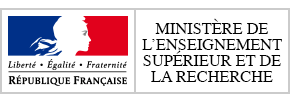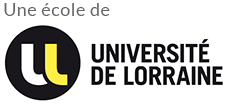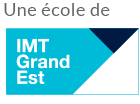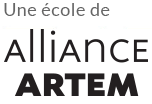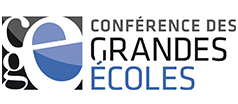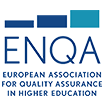Through its pedagogical approach, Mines Nancy trains engineers to become leaders with the intellectual and scientific prowess, creativity, responsibility and ethical standards enabling them to understand the world and to move within it as agile and effective members of companies and organisations.
Pedagogical goals
Through its pedagogical approach, Mines Nancy trains engineers to become leaders with the intellectual and scientific prowess, creativity, responsibility and ethical standards enabling them to understand the world and to move within it as agile and effective members of companies and organisations.
It has always been a forerunner in terms of learning content, such as in the humanities, its approach to language learning and the Artem cross-disciplinary approach, as well as in terms of pedagogical methods in the tradition of French educationist Bertrand Schwartz.
The goal of differentiated pedagogy at Mines Nancy is to support students in defining their personal and professional plans and to allow each student to build an individual learning programme.
Diversified pedagogy
Differentiated pedagogy recognises the diversity of students’ talents and future plans and allows each student to build a personalised learning programme.
Recognising that students possess multiple, different talents also means recognising that their future plans, especially professional ones, can be extremely wide-ranging. We give them the opportunity to choose the classes they want and understand the intention of their choice, and therefore the meaning of each teaching action. To this end, the school sets out the goals of each pedagogical action in the programme.
The wide range of courses available allows students to make a number of clearly motivated choices, particularly in the second and third years, and so build up their own personalised course of study.
Action-driven pedagogy to teach the ability to take action: risk-taking and the exercise of responsibility.
Teaching the ability to act is only possible if the action itself is also taught. To this end, the student is put into multiple real-life situations where action is required most notably through coursework and work placements.
A pedagogy of action for learning to take action: risk-taking and the exercise of responsibility.
Learning to take action can only be acquired through the practice of action itself. To this end, the pupil is put into a situation of action on many occasions, in particular within the framework of project activities and internships; participation in company games, the practice of extracurricular associative activities is also, in this respect, an excellent training school, and is therefore encouraged by the school.
A pedagogy for learning about complexity
The engineer’s field of practice is that of reality and therefore of complexity. Students are put in a situation of learning complexity on many occasions during their schooling, in particular within the framework of the Artem educational sequences, which combine real project management and multidisciplinary learning, both by the complexity of the project and by the composition of the groups of students involved.
A pedagogy of learning to live in society
The engineer is not only the guarantor of the proper application of the law in the company, i.e. the rules and regulations that define the organisation and functioning of the company; he or she is also very often the author: producer of new rules and organisations (quality approach, sustainable development…).
In order to prepare the student for the exercise of these responsibilities, Mines Nancy places him or her, at the school itself, in a pre-professional situation of exercising rights and duties.
For example, attendance at classes is compulsory in the same way as the engineer’s presence in the workplace is required on a daily basis.
Another example is that students are invited to give their opinion and make proposals for any changes to the school’s operating rules. They are periodically asked to evaluate the quality of the teaching and to participate in the reflections on pedagogical developments. The school is thus a place where students learn to exercise responsible power.
A pedagogy built around two interactive and complementary phases
Above all, the aim is to train well-trained individuals, capable of creativity and entrepreneurial spirit.
The training of a civil mining engineer is built around two complementary phases:
An apprenticeship period supervised by the school; this is the time of the personalised training programme of the student-engineer, which does not exceed 25 hours of teaching per week on average;
A time for self-learning, in addition to the supervised teaching time, but also for effective involvement in one or more associative activities.
The involvement of the student in an associative activity is therefore encouraged, because with regard to the aims of the training system, it is potentially conducive to the development of autonomy, responsibility and risk-taking, creativity and cultural development.


